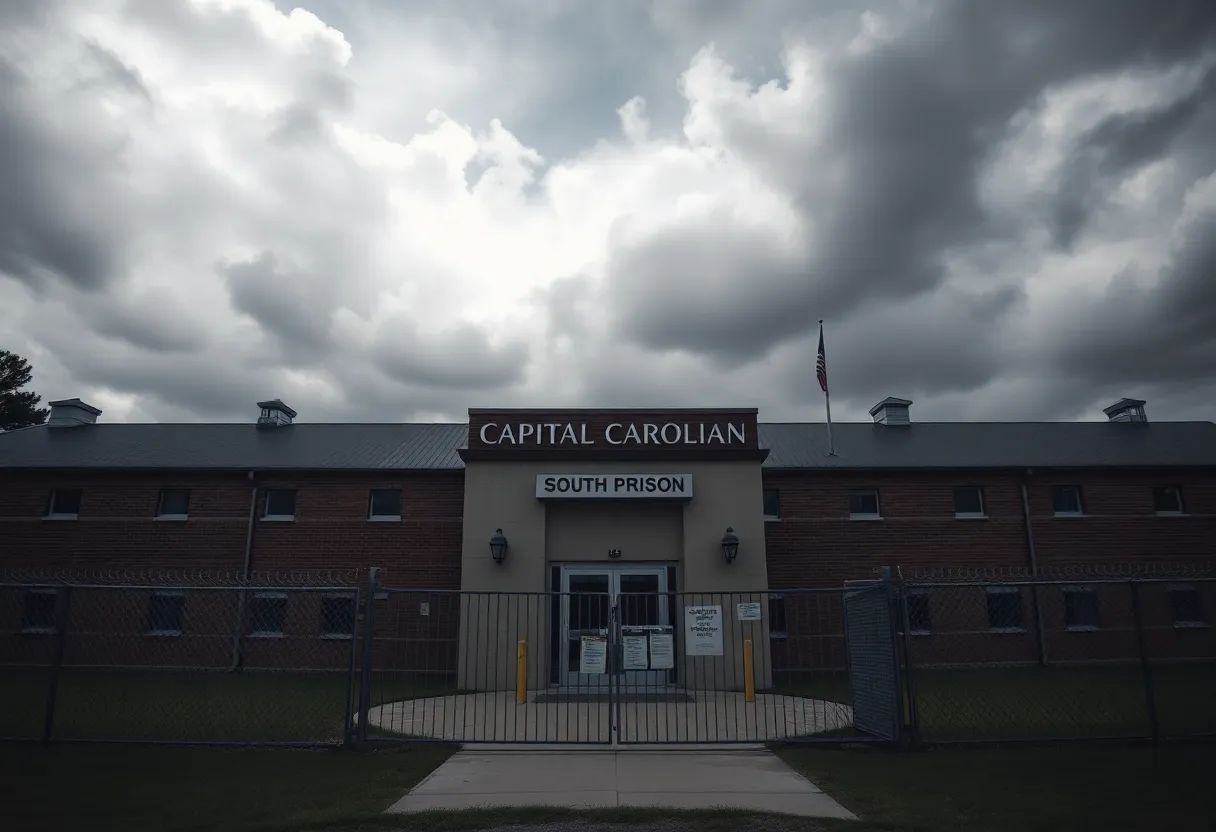

South Carolina Prison Execution
In an unprecedented move, Brad Sigmon, a 67-year-old inmate on death row in South Carolina, has chosen the firing squad as his execution method, rejecting lethal injection and the electric chair. This decision highlights longstanding concerns about the ethics and effectiveness of capital punishment in the state, particularly regarding the suffering caused by previous lethal injections. As his execution date approaches, Sigmon’s case raises critical questions about transparency and justice in the death penalty system, making it a focal point in ongoing debates about capital punishment in South Carolina.
In a surprising turn of events, in the heart of South Carolina, 67-year-old Brad Sigmon has made a controversial decision regarding his upcoming execution scheduled for March 7, 2025. For the first time in the state, he has opted for the firing squad as his method of execution, a choice that is stirring up all sorts of conversations and emotions.
Brad Sigmon isn’t just any inmate; he was convicted back in 2001 for the horrifying deaths of his ex-girlfriend’s parents, Gladys and David Larke. Using a baseball bat, Sigmon committed acts that shook the Greenville County community to its core. Since then, he has spent years on death row, where he learned about the realities of capital punishment, including what many see as a troubling evolution of execution methods.
As execution approaches, Sigmon has turned his back on lethal injection and the electric chair, citing serious concerns regarding the **_prolonged suffering_** of previous inmates executed through these methods. His decision isn’t just a personal preference; it sheds light on the brutal nature of recent lethal injections, which have reportedly taken harrowing amounts of time—up to **_20 minutes_**—a matter of grave concern for many.
On February 26, 2025, Sigmon’s legal team took action, filing a motion with the South Carolina Supreme Court to reconsider a stay of execution. Their argument revolves around issues related to lethal injection protocols and the secretive nature of the drugs used. These concerns have widespread implications; if inmates, like Sigmon, cannot make informed choices regarding their methods of execution, it raises significant ethical questions about the entire system. Historically, South Carolina’s Department of Corrections has maintained that lethal injections yield a swift outcome, claiming that inmates fall unconscious within a couple of minutes. However, this explanation has not quelled the worries voiced by advocates for death row inmates.
The discussion surrounding Sigmon’s fate has opened a Pandora’s box of concerns about transparency in execution methods. For instance, recent autopsy findings of an inmate executed just a month prior suggested a more troubling cause of death, pointing to possible complications during lethal injection. These findings only deepen the scrutiny on how executions are carried out in South Carolina.
As March approaches, Sigmon’s lawyers are working tirelessly to pursue final appeals, hoping to garner clemency or at least a stay of execution from Governor Henry McMaster. However, given the long-standing tradition of denying clemency in South Carolina, the path ahead appears decidedly difficult, if not nearly impossible.
The conversation around Sigmon’s case is part of a larger dialogue on the **_death penalty_** in South Carolina, where fairness and the application of justice have been called into question. There are currently around 30 inmates on death row, and the resumption of executions in September 2024 after a 13-year hiatus has sparked a myriad of discussions about racial inequalities and procedural discrepancies that plague the system.
As South Carolina prepares for what could be a historic execution, Brad Sigmon’s choice of a firing squad raises a tapestry of ethical dilemmas and societal questions. With the wheels of justice turning, all eyes will be watching to see how this story unfolds, making it clear that the stakes couldn’t be higher for Sigmon and for the very fabric of capital punishment in the state.
News Summary A desperate manhunt is underway for Travis Decker, wanted for the murders of…
News Summary Tension escalated in Los Angeles after David Huerta, president of the SEIU California,…
News Summary In a shocking turn of events, former President Donald Trump has criticized billionaire…
News Summary In response to escalating protests over federal immigration raids, President Trump has ordered…
News Summary Operation Last Stand resulted in the arrest of 80 individuals linked to illicit…
News Summary Keishan Scott, a 24-year-old Democrat, has won a significant special election in South…